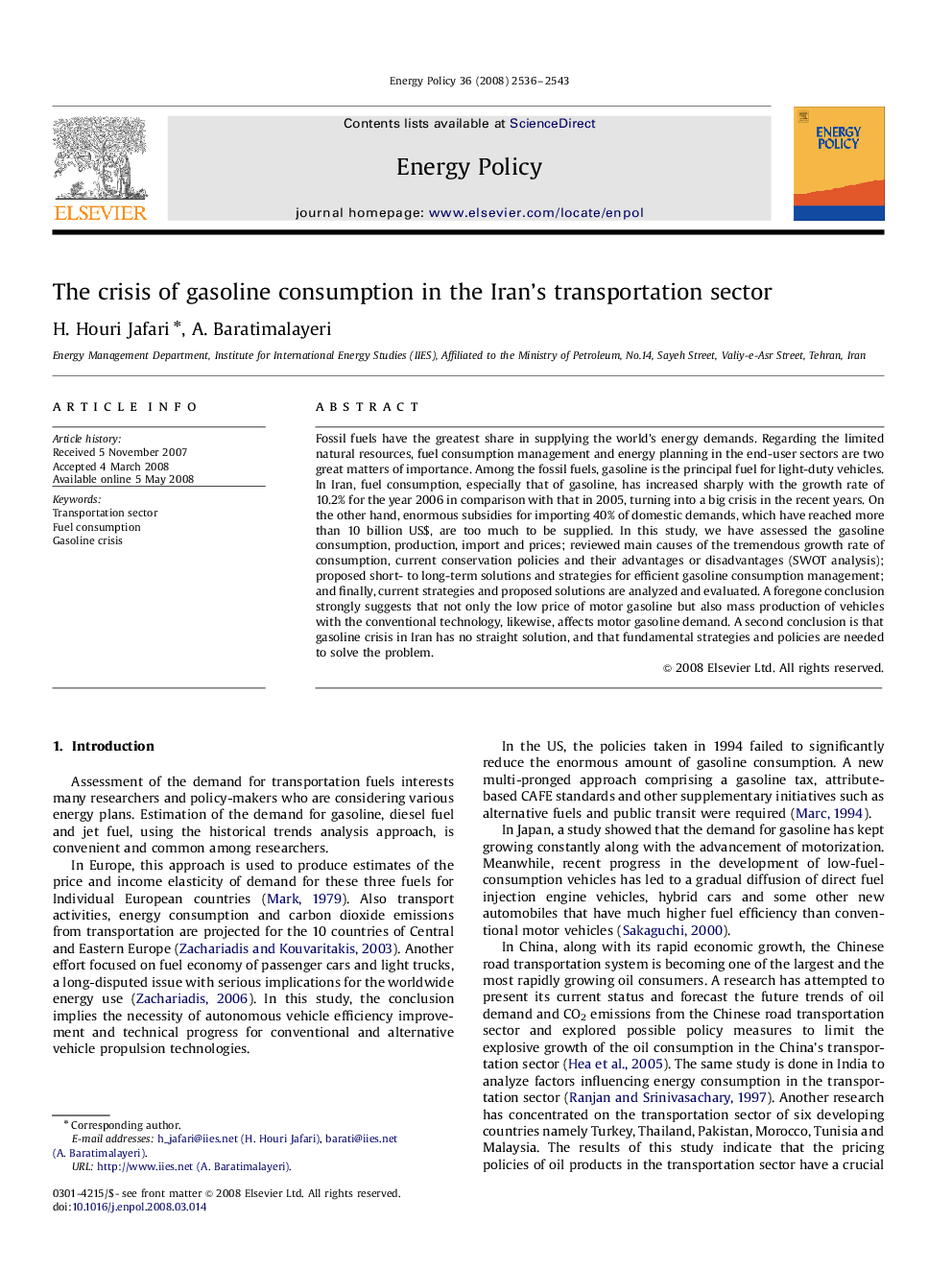| Article ID | Journal | Published Year | Pages | File Type |
|---|---|---|---|---|
| 997143 | Energy Policy | 2008 | 8 Pages |
Fossil fuels have the greatest share in supplying the world's energy demands. Regarding the limited natural resources, fuel consumption management and energy planning in the end-user sectors are two great matters of importance. Among the fossil fuels, gasoline is the principal fuel for light-duty vehicles. In Iran, fuel consumption, especially that of gasoline, has increased sharply with the growth rate of 10.2% for the year 2006 in comparison with that in 2005, turning into a big crisis in the recent years. On the other hand, enormous subsidies for importing 40% of domestic demands, which have reached more than 10 billion US$, are too much to be supplied. In this study, we have assessed the gasoline consumption, production, import and prices; reviewed main causes of the tremendous growth rate of consumption, current conservation policies and their advantages or disadvantages (SWOT analysis); proposed short- to long-term solutions and strategies for efficient gasoline consumption management; and finally, current strategies and proposed solutions are analyzed and evaluated. A foregone conclusion strongly suggests that not only the low price of motor gasoline but also mass production of vehicles with the conventional technology, likewise, affects motor gasoline demand. A second conclusion is that gasoline crisis in Iran has no straight solution, and that fundamental strategies and policies are needed to solve the problem.
